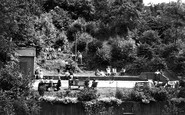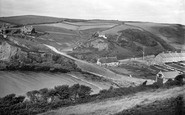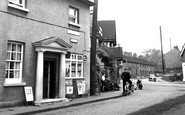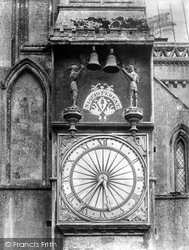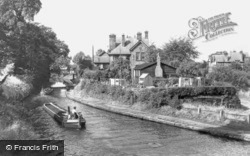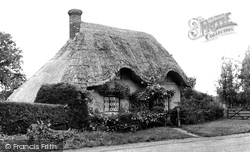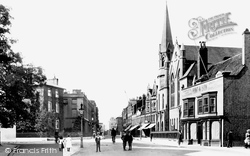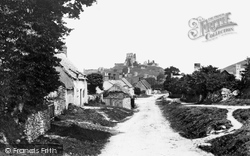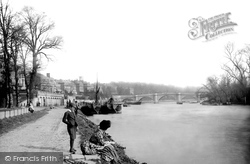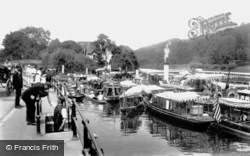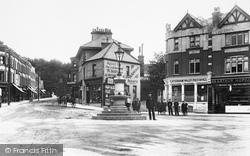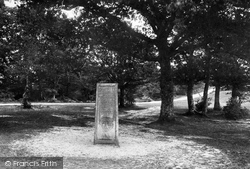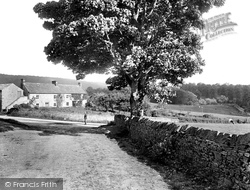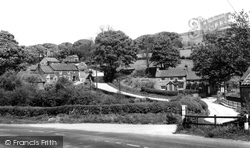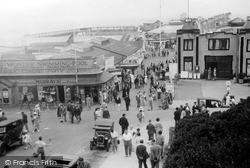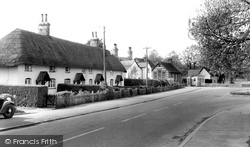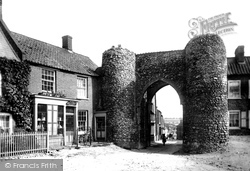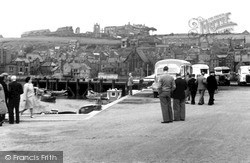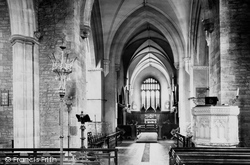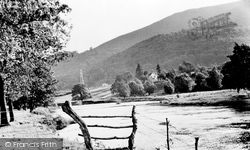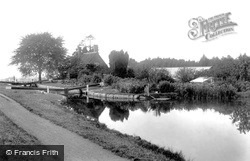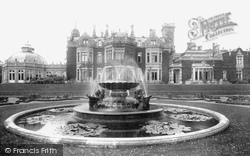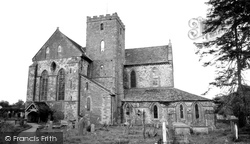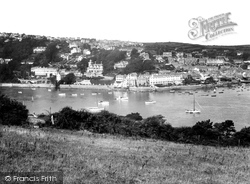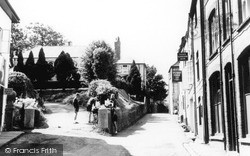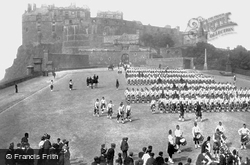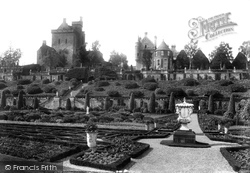Places
18 places found.
Those places high-lighted have photos. All locations may have maps, books and memories.
- Hythe, Kent
- Hythe, Hampshire
- Small Hythe, Kent
- Bablock Hythe, Oxfordshire
- Methwold Hythe, Norfolk
- Hythe, Somerset
- Hythe, Surrey
- Hythe End, Berkshire
- The Hythe, Essex
- Egham Hythe, Surrey
- West Hythe, Kent
- New Hythe, Kent
- Broad Street, Kent (near Hythe)
- Horn Street, Kent (near Hythe)
- Newbarn, Kent (near Hythe)
- Newington, Kent (near Hythe)
- Broad Street, Kent (near Hythe)
- Stone Hill, Kent (near Hythe)
Photos
360 photos found. Showing results 2,421 to 360.
Maps
101 maps found.
Books
10 books found. Showing results 2,905 to 10.
Memories
4,406 memories found. Showing results 1,211 to 1,220.
Echoes Of The 1950s ...
I entirely share the words posted earlier by Philip Dew, one of my colleagues at Kemsing Primary school at the time. That trek over the hills to Woodlands now would be seen perhaps as a long haul journey ! That old grey horse ...Read more
A memory of Sevenoaks in 1955 by
Summers In Kirkmuirhill
Titled."Summers in Kirkmuirhill".....My Granny Brown lived there and as a wee boy I was sent from my home in Glasgow to stay with my Granny for the summer. I loved the time there and enjoyed the fequent walks with my ...Read more
A memory of Kirkmuirhill in 1949 by
Hop Picking During The War
I hated hop picking. We started in 1938 to help pay for my sister's uniforms when she went to Ashford County School. At first my mother was slightly ashamed but soon entered ino the spirit and competition as to who ...Read more
A memory of Staplehurst by
Ravenfield Street Tickhill Street Denaby Main
I loved living in Denaby, when I was a nipper, should I roam into the ajoining streets; I remember neighbours giving me a friendly shove back to my own end with their walking sticks! We never ever ...Read more
A memory of Denaby Main in 1956 by
Memories Of Broughton During The War
Hi all. My brother and I were evacuated to Skipton in late 1941 from London. As we all sat on the floor in some large hall in Skipton after out trip up from London, people were walking ...Read more
A memory of Broughton in 1941 by
Early Years
I was born at Hope just after the war and had an idyllic childhood. Early memories are of the Regatta, the visits from the Salcombe Lifeboat, the scout party raising funds for the Lynton Lynmouth disaster, the coronation village ...Read more
A memory of Hope Cove by
Scott And Jupp Families
I was brought up in Bletchingley in the 1960s and my father Clyde Howard Willats was born near Redhill. He knew Outwood well and used to tell me the story about the two families who owned the two windmills, they were the ...Read more
A memory of Outwood in 1958 by
Pitt Crescent Durnsford Road Sw19
I was brought in council flats overlooking Wimbledon train depot and Gap Road Cemetery. It was grim but being young we saw the paved area in the "front" of the flats as a football stadium and cricket field in ...Read more
A memory of Wimbledon
Great Haywood
My name was Mackin when I lived in Great Haywood in the 197'0s. We lived in Elm Close for over 5years. When I began to look through the photographs in the Frith Collection and saw the one above, it brought back memories that ...Read more
A memory of Great Haywood in 1970 by
Brownrigg
The 2012 Brown Rigg School Reunion wil take place over the weekend of 8/9/10th June. There will be a packed programme of entertainment and the opportunity to take a look around Brown Rigg once again. Bellingham hasn't changed very ...Read more
A memory of Bellingham by
Captions
4,899 captions found. Showing results 2,905 to 2,928.
The figures and face of the outside clock are a hundred years later than those inside; the bells are struck by the knights on the quarter hour.
By the time this photograph was taken, commercial carrying in narrowboats was almost at an end; it was kept going in many cases by early canal enthusiasts, for whom working long anti-social hours in all
Viewed from the old railway bridge, here is Vine Cottage by the River Anton where it joins the Test at Fullerton Junction.
The building to the right, next to the Methodist Church and occupied by the undertaker and upholsterer, has now been rebuilt in similar style.
The original Saxon fortification was succeeded by the extensive Norman castle seen today.
Beyond the bridge the skyline is now dominated by the vast Neo-Georgian Star and Garter Home for disabled ex-servicemen, built in 1921.
increasing affluence of the middle and lower middle classes; they flocked out of London in their thousands onto the river at weekends, hiring punts, skiffs, rowing boats, sailing boats and steam launches by the
A uniformed postman stands beside the drinking fountain, whilst among the onlookers by the pavement are two telegraph boys.
This famous memorial, encased in iron, dates back to 1841 and marks the spot where King William Rufus, son of William the Conqueror, was accidentally killed by an arrow shot by the nobleman Sir Walter
The Georgian Marske Hall, owned by the Hutton family from 1842, has now been converted into luxury apartments.
Chisel Hill Mill (left) reminds us of local industry powered by the River Eller. Out of shot, top left, is the beguiling little church of St Hilda.
By the years just before the Second World War, it had become a thriving town attracting many holiday visitors. Here we see crowds flocking around the pier with its swimming pool and theatre.
These thatched cottages are by the old Reading Room on the North and South Tidworth borders. In front of the Reading Room is a red telephone box.
Though castle and gateway were built by the Normans, the settlement's origins are still more ancient, for it stands on the line of the Peddar Way, an ancient Celtic track.
The old 'charas' now graced by the name of coaches brought many day trippers to our old port.
The plain east window was to be replaced in 1922 by the colourful stained glass of a memorial window to Brigadier Barker, who was killed in action in the First World War.
Abergavenny had debated the merits of public electricity for nearly 40 years before it was finally introduced - only for it to be affected by the wartime blackout.
The pattern created by the extending balance beams has been compared to the backbone of a huge reptile. This lock is on the edge of town, close to the old prison.
Preston Hall was built for the businessman and entrepreneur Edward Ladd Betts by the architect John Thomas in the Jacobean style in 1850.
It was restored by the 'Good Lord Scudamore' and re-consecrated in 1634. The restoration of the roof required the wood of 204 Herefordshire oak trees.
By the mid 1930s, pleasure craft had achieved greater importance.
Madford House (left, behind the trees) stood on the site now occupied by the tax office.
The Edinburgh Castle we see today is, with a few additions, that built by the Earl of Morton following the siege of 1572. Here we see a battalion of the Black Watch parading on the castle esplanade.
endured its share of troubles: it was besieged and bombarded by Cromwell, destroyed in 1689 and subsequently rebuilt, garrisoned by Hanoverian troops in 1715, and finally partially dismantled in 1745 by the
Places (18)
Photos (360)
Memories (4406)
Books (10)
Maps (101)

